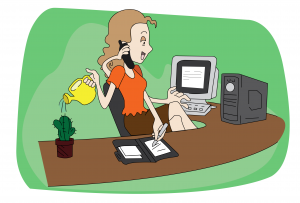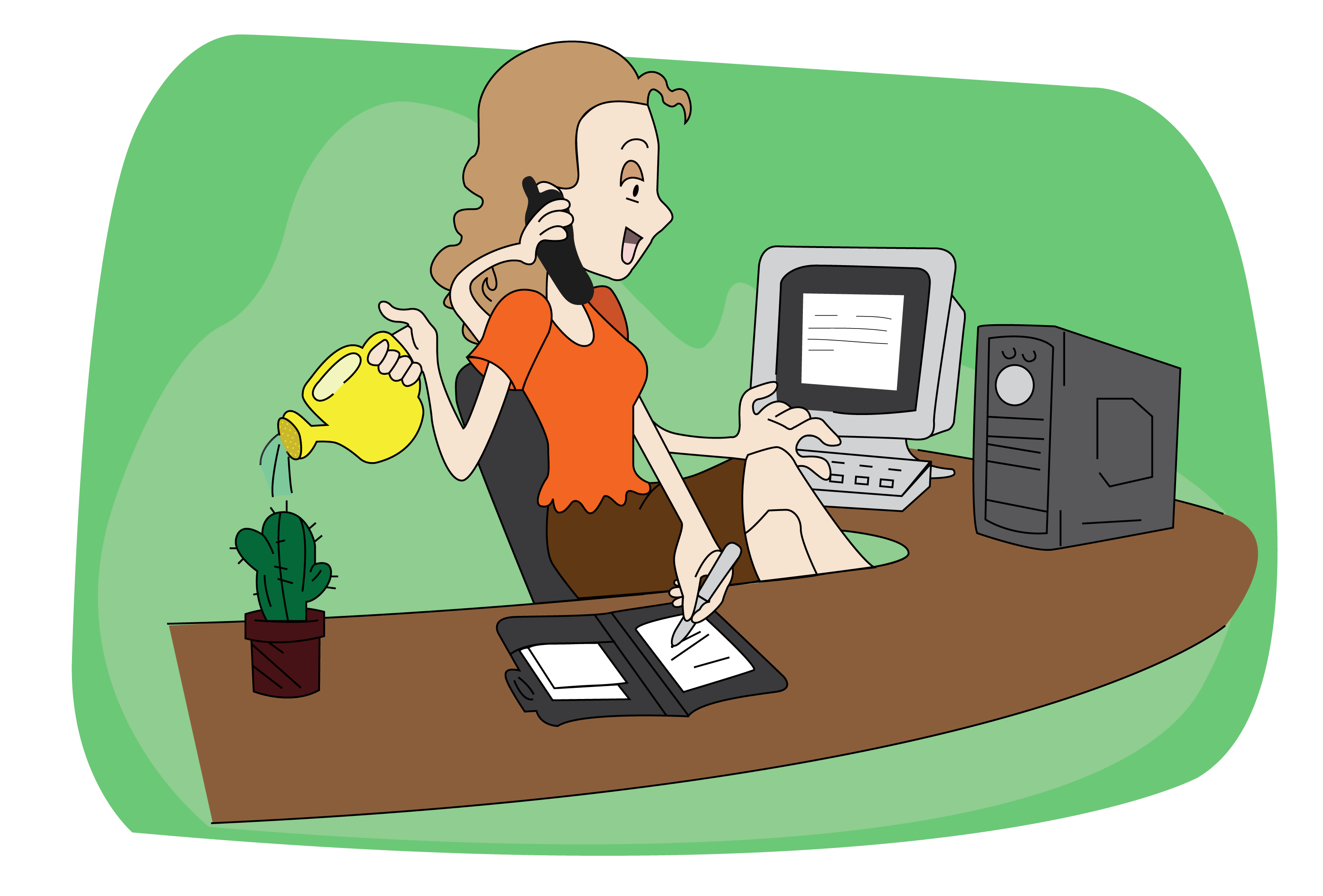As a university student, an ordinary hour for me consists of working or studying, driving, chatting on the phone or texting, checking emails, listening to music and eating. Looking around at my peers, I can say with confidence that we are all slaves to multitasking. But if you think you’re being more efficient by doing several tasks at once, you couldn’t be further from the truth.
In 2009, Stanford University conducted a study comparing heavy media multitaskers versus low media multitaskers. The results showed that heavy multimedia taskers have trouble filtering out irrelevant information, are unlikely to ignore irrelevant representations in memory and are worse than low media multitaskers at task switching. According to the study, heavy media multitaskers are distracted by the different forms of media they are consuming.
For example, how many of you have been on a call, gone into the kitchen to get something and walked right back without the item you went for? Or, have you ever caught yourself writing a paper and listening to music when suddenly you find yourself accidentally typing out the lyrics.
Unfortunately, our brains aren’t meant to do two things at once. Technically, even when we think we’re multitasking, it’s really just our brain fooling us by rapidly switching between tasks. In doing so, we are overworking our brains and absorbing very little information. It also takes us longer to complete the primary task we set out to do.
“We certainly have found that [heavy media multitaskers] are worse at all aspects of multitasking, focusing and memory management. There is no question that your work suffers when you multitask,” said Professor Clifford Nass, one of the researchers of the study.
Although you might think you are accomplishing a lot in a short amount of time, you really are not. Nass went on to explain that, “in the short run, doing multiple things at once makes you do all of them less well and doesn’t save time. In the long run, it harms your brain so that even when you are not multitasking, you do worse.”
So why do people multitask?

Assistant professor of communication at Ohio State University, Zheng Joyce Wang, recently released her observations from her own study on multitasking. She concluded that people gain emotional satisfaction from multitasking, and revealed that we feel like we are accomplishing a lot because we confuse those positive feelings for productivity. The reality is that we aren’t being more productive, we just feel emotionally satisfied.
So now that we are faced with the cold, hard truth of our bad habit, we must learn to properly manage our time. It might be the only alternative to multitasking. While I hate to admit my parents and teachers were right all along, time management might be the only way to get everything done, avoid high stress levels and save a time for our social lives. You’ll be surprised at how much free time you’ll have left over if you efficiently manage your schedule.
Now put your phone back in your pocket, logout of Facebook and finish what you started!
SIDEBAR – To help you through the process, especially during the last weeks of the semester, we’ve done some research and put together some tips on how to manage your time.
-Make a list of the tasks you need to accomplish and plan out each day
-Prioritize your tasks and say no to nonessential ones
-Delegate
-Focus during your most productive time of day, whether it be morning or night
-Breakup time-consuming tasks into smaller ones
-Manage your time in increments, work in intervals of what suits you best
-Evaluate how you’re spending your time
-Limit distractions
-Get plenty of sleep, six to eight hours and eat properly
-Take a break when needed
-Plan a reward for yourself so you have something to look forward to




